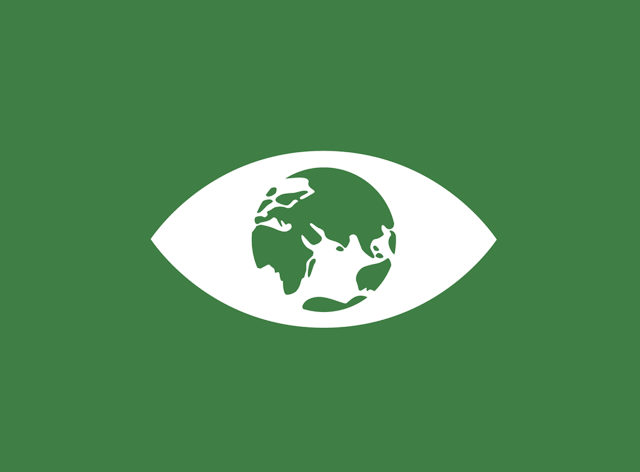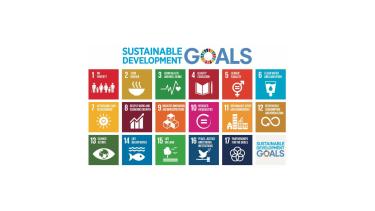On this page, you'll find a report on all actions and activities initiated at the University of Namur in connection with United Nations Sustainable Development Goal #13: "Action on climate change".
Social impact and actions
Corporate initiatives
Sustainable mobility
Sustainable mobility is a key concern for UNamur. Several initiatives relating to mobility have therefore been taken by our institution.
- The Company Travel Plan (PDE) is the first milestone on the road to more sustainable mobility. Learn more
- Cycle parking for students and staff. Learn more
- At the BUMP (October 2023): a terminal has been installed in the entrance hall. All you have to do is install your scooter, which will be secured using a code. A locker is also available for your helmet. This installation is currently being tested. The aim? To identify the expectations of members of the university community in this area.
- Payment of public transport season tickets for UNamur staff.
Structural teleworking
A collective labour agreement (CLA) on structural teleworking and occasional teleworking has been implemented.
Reducing energy consumption
Several initiatives have been taken to reduce energy consumption (electricity, heating) through more rational use. Read more
An awareness-raising campaign on energy wastage and how to reduce it was launched in 2022.
Carbon Footprint
UNamur has embarked on the production of its Carbon Footprint, which will be published in 2024. This assessment will help to identify areas for action to make the university even more sustainable.
Domaine d'Haugimont - Pro Silva forestry project
Ecological and economic assessment - Lessons and prospects for resilient forests in Wallonia
Wallonia's forests are facing a number of challenges, including tree dieback due to prolonged drought, which is forcing the various players involved to rethink their practices in order to adapt to climate disruption.
5 projects have been selected by a jury as part of Wallonia's recovery plan. Over the next two years, the teams involved in these projects will aim to develop and share knowledge on the importance of dead wood for more resilient forests, drought (development of a climatic drought indicator, particularly in forest environments), the ecological and economic assessment of 30 years of Pro Silva silviculture, the functional diversification of forest interfaces and the optimisation of silvicultural itineraries for the creation of resilient mixed stands. More about the project... | Learn more about the sustainable campus...
Partnership with the Entre-Sambre-Et-Meuse National Park
The Entre Sambre et Meuse National Park (ESEM) is located in the communes of Couvin, Viroinval, Momignies, Froidchapelle and Chimay, and offers a wealth of geological sites to enhance. With its expertise in geography, geology and biodiversity conservation, UNamur is one of its partners and will make its knowledge and experience available to promote and preserve this exceptional natural heritage. Learn more
Coeur de Forêt - UbiCast project
For the past two years, UbiCast, the supplier of the in-auditorium recording solution used at the University of Namur has replaced its end-of-year 'goodies' with participation in reforestation projects. This year, the University of Namur is sponsoring 22 trees located on a project plot in Bolivia.
Information and awareness-raising actions
2022 | Grande conférence namuroise | From migration to mobilisation: when the climate gets us moving
15/11/2022 | Samuel Lietaer is a specialist in environmental social sciences. His main research interests are climate change adaptation issues, human mobility linked to environmental and climate change, and sustainable development policies in low-income environments. Learn more
2022 | TEDx UNamur (Re)Shape the future
TEDx conferences are a simple concept. Its slogan is "Ideas worth spreading"! In short, you choose a theme, you invite a dozen speakers from a wide range of backgrounds and each of them has a maximum of 18 minutes to deliver an innovative and inspiring message to the public! Learn more
2021 | Science Congress
Laurent Houssiau, Professor at the Department of Physics at UNamur and Adélaïde Charlier, activist from Namur and co-founder of the Belgian Youth for Climate movement, co-hosted a conference at the Science Congress. Two points of view and two generations converging in the same direction: raising awareness of the need to act now to stop climate change! Read more
2021 | Climate: no more doubt
As part of Professor Xavier Thunis' "Environmental Law and Sustainable Development" course (Faculty of Law), Professor Laurent Houssiau (Department of Physics) recorded a video on the reality of climate change. With graphs, scientific data and figures, he explains that a positive outcome for humanity implies a radical change in our habits. Find out more
The Chair in Sustainable Development and Transition
This UNamur Chair is dedicated to the issue of sustainable development and transition and the ethical issues it raises. It aims to raise awareness and inform the academic community and the general public. Learn more
The University Forum for International Development Cooperation (FUCID)
As an NGO within a university, the University Forum for International Development Cooperation (FUCID) aims to be a place of meeting, expression, debate, advocacy, awareness and commitment, action, militancy and utopia. A network of men and women sharing the same values of solidarity and citizenship. It is rooted in the vision of UNamur and in this framework participates in the overall objective of the university, namely to train responsible actors in society for a more just, sustainable and equitable world, with respect for human rights.
Small gestures for the climate
This study, carried out by FUCID, is a way of understanding why, and of exploring the following questions in greater depth: How can we explain such a passion among young people for small, individual gestures? What is it that prompts them to turn first to this type of response to the ecological crisis we are going through? Does this type of action make it possible to understand and combat the causes effectively? Why is the rhetoric of eco-actions so heavily criticised by one section of society - rightly, wrongly or both - while being promoted by another? Are these small actions really the solution? Or should they be abandoned?
Research institute
Institute of Life, Earth and Environment (ILEE)
Research at the Institute of Life, Earth and Environment (ILEE) is relevant to several of the United Nations' Sustainable Development Goals (SDGs). For example, we study the impact of multiple stressors (chemical, physical or pathogenic) and/or pollutants (pesticides, pharmaceuticals, endocrine disruptors, neurotoxins, atmospheric residues) on organisms but also on ecosystems, and solutions are sought to strengthen their resistance and resilience and/or limit harmful products (e.g. immuno-stimulation, search for alternative pharmaceuticals).
Furthermore, by prospecting and characterising geological resources (water, metals and other raw materials) and by integrating human use over the centuries, from Antiquity to the current Anthropocene, ILEE contributes to the sustainable management of natural resources, including architecture and art. The transition to a more sustainable agriculture is investigated through the concept of ecosystem services via mapping, modelling and integrated assessment. The consequences of climate change on human migration or the interactions between the different agents responsible for the transmission of vector-borne and zoonotic diseases are also at the heart of ILEE's research.
Research
One project among many: LUCID
Joint research project to understand the impact of land use, and corn in particular, on people in the Philippines. Find out more
Discover all publications related to the Sustainable Development Goal "Action on climate change" on the UNamur research portal.
Chairs
- 2019-2020 | The Chair in Sustainable Development and Transition at the Faculty of Science.
- 2022-2023 | The Chair "Notre-Dame de la Paix" of the ESPHIN Institute | Commons and common good(s): an articulation for a new model of society?
- 2023-2024 | The Chair "Notre-Dame de la Paix" of the ESPHIN Institute | 60 years of pacem in terris: is there still a place for peace today?
Education
- Master of specialization in international and development economics | Partnership with UCL
- Master of specialization in transport and logistics| Partnership with ULB
- Master of Specialization in Risk and Disaster Management in the Age of the Anthropocene | Partnership with ULiège
- Master of specialization in integrated health risk management | Partnership with ULiège
- Master interuniversiataire en smart rurality | Partenarait avec l'UCL et l'ULiège
- Further training in Sustainable Development| Partnership with HEPN

